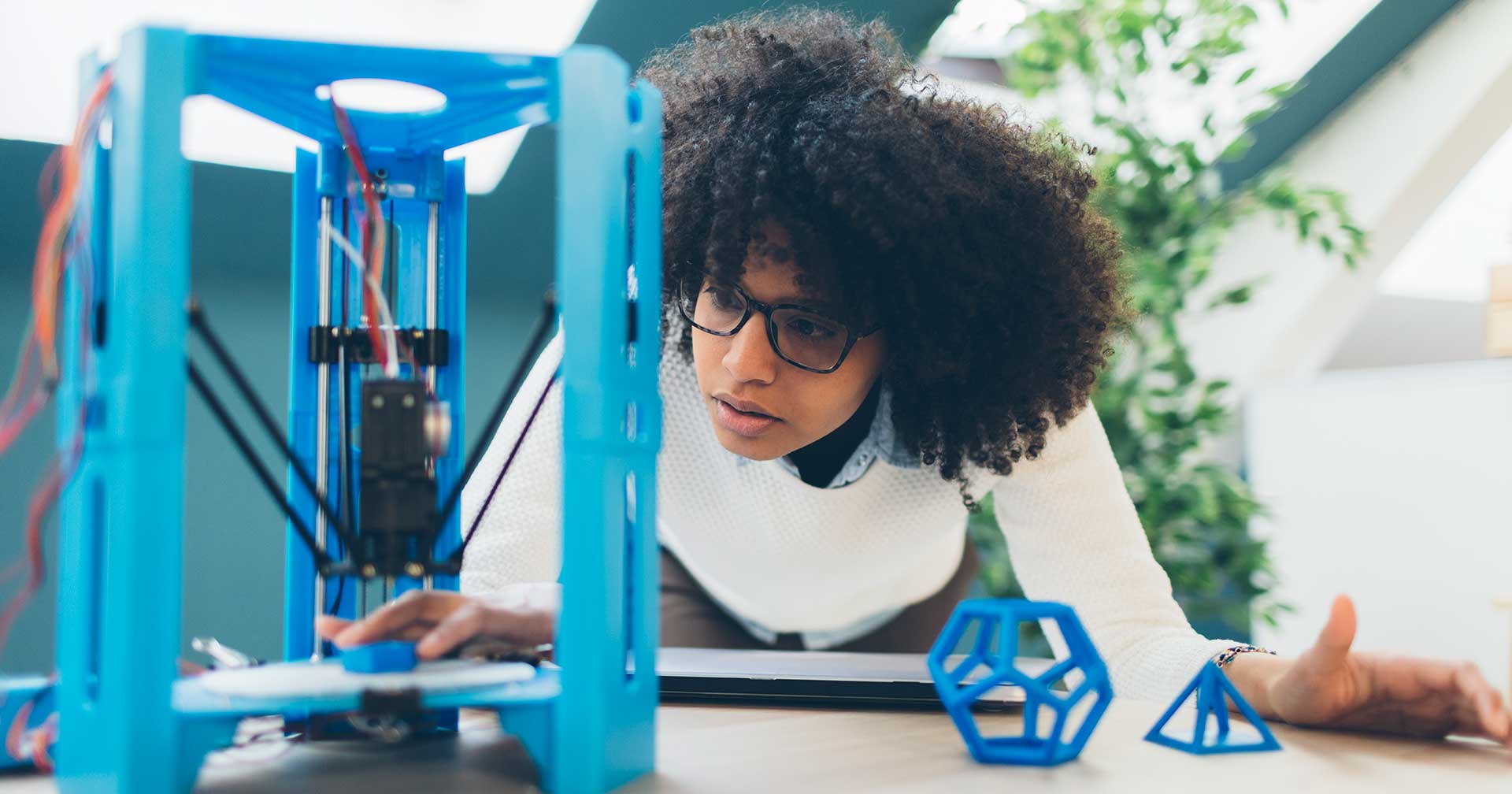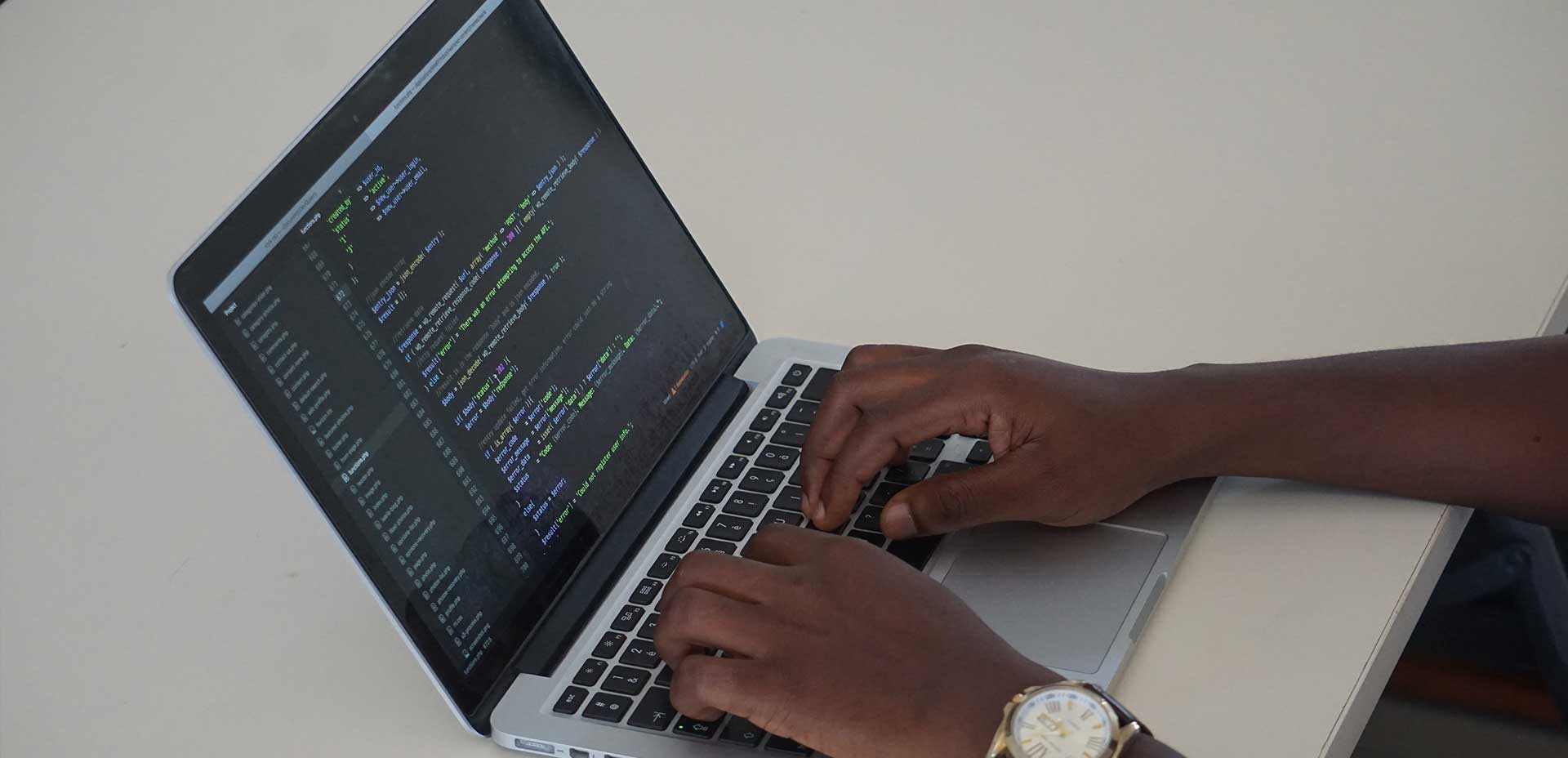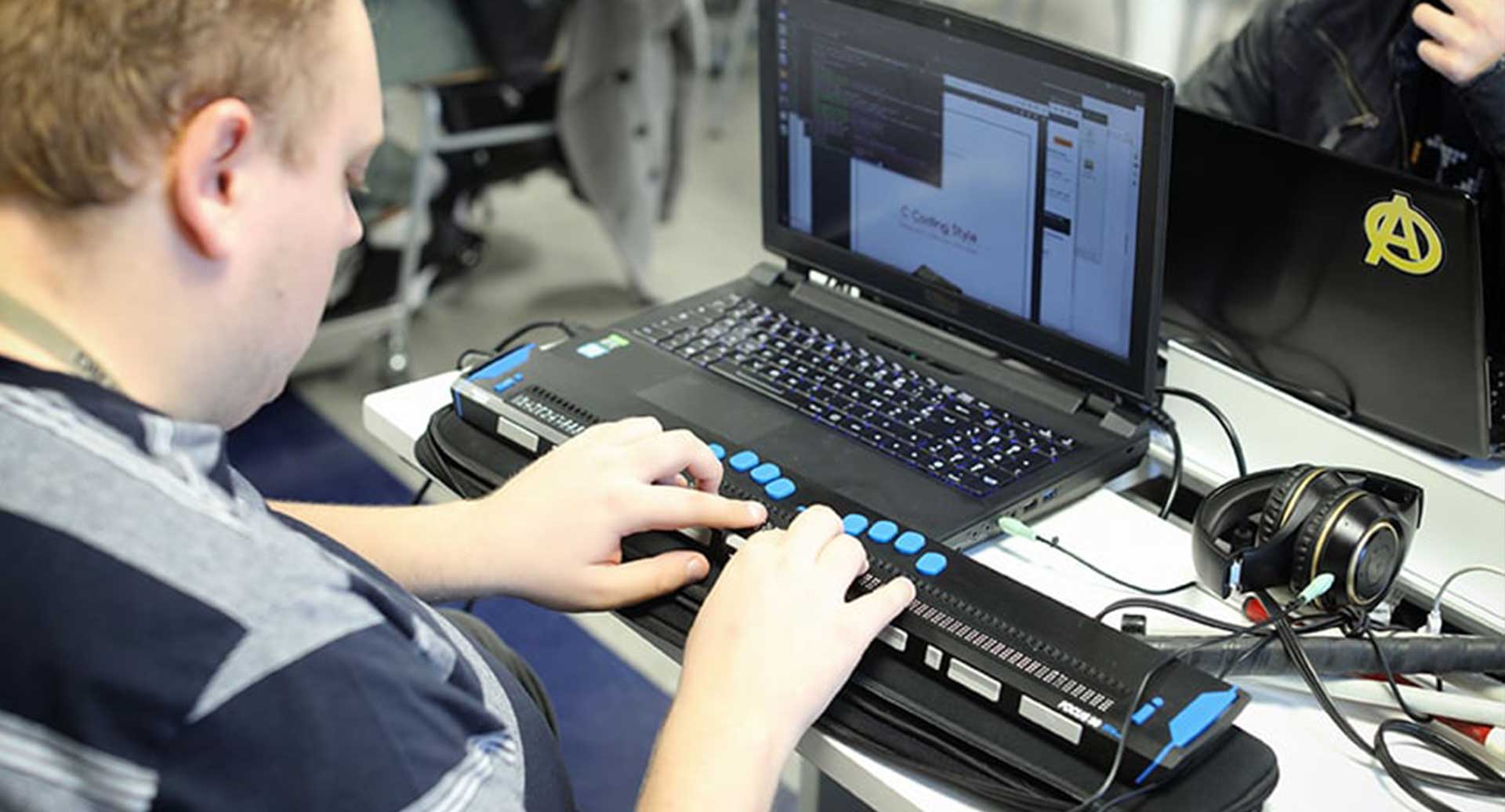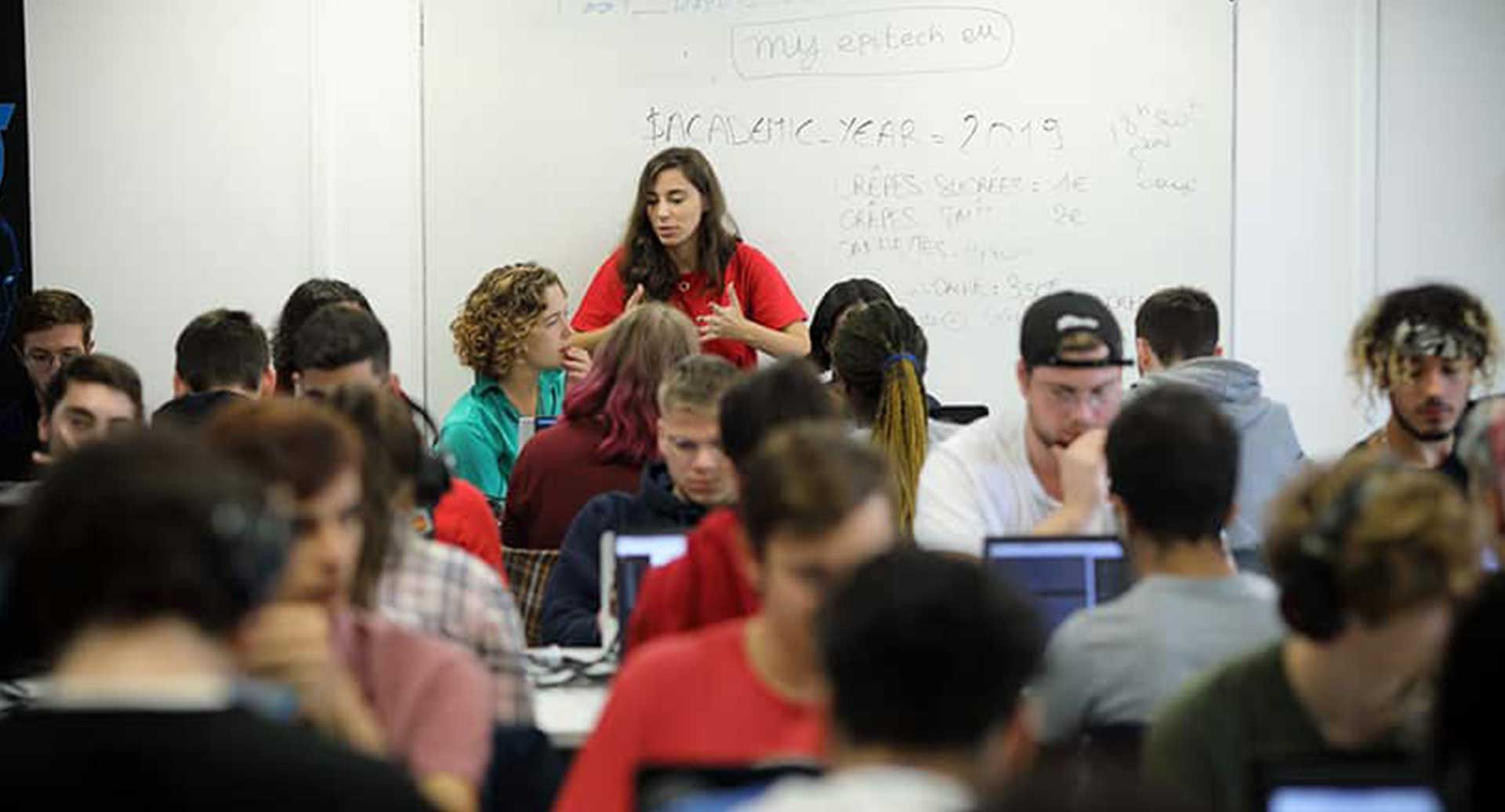A coded method
between flexibility and durability
Project-based pedagogy is now widely used in the world of training; at Epitech, we are pioneers of this method and we put it at the center of our school. We value projects as a learning tool, which makes it possible to acquire knowledge in a more efficient, sustainable and above all adaptable way to the world of tomorrow.
Dynamic and collective, it is based on exchange, collaborative work, the variety of projects and its proximity to the business world.
It is an agile method that allows learning in a sustainable and constructive way. It adapts and builds around the student a combination of experiences that allow them to acquire and develop skills over time.
Active project-based pedagogy is thus at the origin of learning. That is to say, through their experiences, their successes, their research, but also their failures; the students keep in memory reflexes of reasoning and development of competences and thus acquire knowledge in the long term.

By working on projects for which they do not necessarily have any prior knowledge, students experiment, erase, move forward, step back. It is an empirical method of « Learning by Doing ». It does not matter if they are wrong … Because it is indeed practice and custom that will leave traces in the minds of students via cognitive reflexes. The analysis will then become practical, and the theory will flow naturally from these experiences.

Projects are used as part of an inductive and active pedagogy. Inductive because knowledge is induced from experience; active because the students are at the center of this learning. They are not simple receptacles of knowledge, but will voluntarily seek knowledge in a very practical and concrete framework to then theorize it. Instead of serving them knowledge, we serve them problems to which they must find solutions.
Thus, students are invited to develop professional projects, on their own or on behalf of companies. When implementing these projects, they start, in a very natural way, in search of knowledge that they do not have. This is how as they explore, through sharing and research, theory creeps almost insidiously into their daily lives. In addition, the fact of working on concrete projects of real usefulness is also much more stimulating for the students. At Epitech, we believe that knowledge is only valuable if it is put into perspective.

Project-based pedagogy is based on a collaborative system and group dynamics. Collective intelligence develops work mechanisms and skills, in short as in working life. But teamwork sometimes has its share of disagreements, which can be extremely beneficial for learning. This is called the « sociocognitive conflict », a formative stage because it allows one to become aware of the point of view of the other.
We must then find common ground, get out of our comfort zone, and the simple fact that a third party casts doubt on our own reflection necessarily leads us to question ourselves. Trying to convince the other can also be a constructive challenge in the deployment of a project. These are all driving forces for personal development and the consolidation of knowledge. A whole process that results in the ability to develop fluid and productive collaborative synergies.

Today emblematically, the sessions at the Epitech pool represent the perfect example of the implementation of our pedagogy by projects.
By bringing the students together for several weeks, the Pool makes it possible to test their motivation and above all to strengthen mutual aid and solidarity between students, values dear to Epitech.Over the years, the Pool has remained an essential step in the Epitech curriculum, in which it intervenes in different forms and at different times.
Epitech invented the concept of the Pool 20 years ago. At Epitech, the pool is not a discipline of (synchronized) swimming but a discipline sculpted on intensive work. Students find themselves immersed in one of the most difficult programming languages (C) with a great deal of work to do. The challenge is to be able to cope, to learn to breathe underwater.
The Pool signifies immersion into the deep end of coding! Students will be immersed in an atmosphere of work and sharing, studious but in a permanent good mood. What better way to discover this new universe?
The Pool is an intense time, a time for students to test both their endurance and motivation, but also their thirst for coding and most importantly learning and logic

The digital world is constantly evolving, and we will not give you a ready-made recipe. The idea of the Pool is to teach students to find answers on your own. They will be helped, guided, supported, by the Asteks (the students of the upper years who will supervise you) but also by their peers, who swim in the same pool as them.
Students will surely encounter similar difficulties and will learn by helping their neighbour, but also by seeking answers from others. The group dynamic will thus have its effect and well beyond technical learning, they will learn to work together: to support each other, to challenge each other and to unite around a common project

We will come to awaken in them their capacities of adaptation, research, and self-learning. What could be more stimulating than to seek in oneself or with others the solution to a problem? And not in a manual! At Epitech, the students are not seen as a receptacle of knowledge and the Pool is here to remind them that the answer lies within them. Only the students have the capacity to reason and achieve their goals.
Thanks to the pool, they will acquire the right reflexes, the right rhythm, tenacity, the right movements to help them swim in the deep end of tech !
First year, second year, but also during the innovation cycle from the third year, the pools support students throughout their studies.
The most iconic Pool that every Epitech student remembers is the one in the first year. For many of them, these are the first steps in the world of coding with learning a new language. It lasts five weeks, begins with small projects, then as the students gain skills, they discover the « big piece »: bistromatic, a calculator that manages infinite numbers. A major challenge for a first-year student who has never coded.
Be rest assured, the students will not be on their own. Divided into six factions, each of them is supported by an educational coach and two technical assistants.They are graduate students who went through the same thing as them and are there to help them understand how to reason in order to progress and support them in their reflection process, but without giving them the answer and letting them find it by themselves.

At the beginning of the second year comes the C ++ Pool, which teaches the student this new language. After discovering C in the first year Pool and learning to master it for the rest of the year, they will come out of an internship lasting several months. So, the C ++ Pool will be a good way for the students to get back on their feet. These three intensive weeks allow them to be effective in C ++, to calmly understand the projects of the coming year and consolidate their achievements. If the pace of work is even more sustained than during the first year Pool, the fact that they now master the computer code well enough will immerse them even more quickly in more challenging projects.
Another form of the Pool takes place in the third year during the Moonshot event